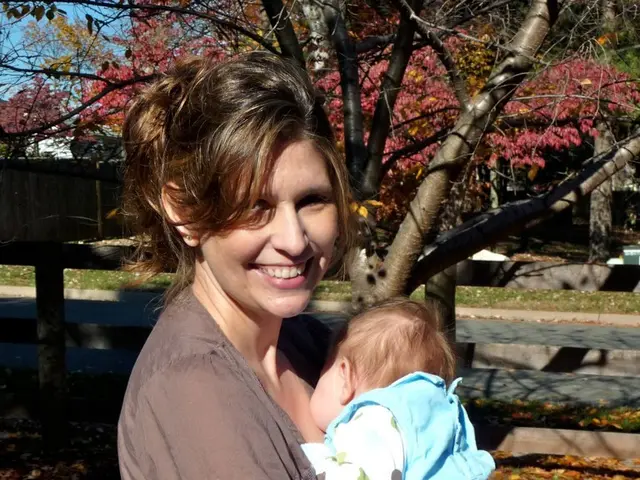Experiencing Miscarriage: Discovering Support for Your Grief
Dealing with a miscarriage is a tough, isolating experience many women face. Yet, about 15 to 20% of pregnancies end this way, making it relatively common. Unfortunately, many women choose to stay quiet about it, creating a stigma that makes recovery even more challenging. But there's no need for that.
Not discussing your feelings isn't the answer. When one woman breaks the silence, others often find relief in sharing their stories. As Ob/Gyn, Rebecca Bagley, M.D. explains, "A lot of women don't talk to each other about it, but when one woman speaks up, others feel a sense of relief and often share their own experiences."
It's essential to remember that a miscarriage isn't your fault. While known risk factors such as smoking, alcohol, and drug use can contribute, most miscarriages happen due to chromosomal problems during conception. So don't blame yourself; it's not in your control.
Finding support is crucial for managing the emotional journey of pregnancy loss. Dr. Bagley recommends reaching out to friends, family, or joining a pregnancy loss support group. These interactions can offer a sense of closure and help you process your grief following a miscarriage.
Remember, experiencing a miscarriage doesn't mean you can't have a baby. Most women who go through miscarriage have successful, full-term pregnancies later on. Furthermore, having one miscarriage doesn't increase your risk of having another.
Although discussing miscarriage may seem uncomfortable, doing so can help you get the support you need. In addition to seeking out support groups and therapy, consider reaching out to organizations like the Pink Elephants Support Network, The Miscarriage Association, or participating in community events designed to raise awareness about pregnancy loss. These resources offer emotional support, connections with others who have experienced similar losses, and access to professional counselling services. You don't have to go through this alone—help is available.
Reaching out for support can be beneficial when dealing with miscarriage-related feelings, as discussing with others can offer a sense of closure and help process grief. Joining women's health support groups, such as the Pink Elephants Support Network or The Miscarriage Association, may provide emotional support and connections with peers who have experienced similar losses.
Discussing and sharing women's health experiences, including miscarriage, can help break the stigma and facilitate healing. Engaging with science, particularly health and wellness research, can also offer insights into the underlying causes of miscarriage and provide comfort in knowing that the odds of successful pregnancies are high for most women.








